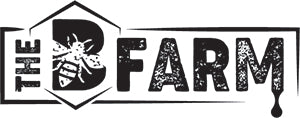Although beekeeping is more popular in rural areas, it's not entirely impossible to become a successful beekeeper in urban or residential regions. In fact, bee hives don't have to be a large production; you can care for bees and live with neighbors in proximity simultaneously. With that in mind, you should use these tips for beekeeping in residential areas and take extra precautions to ensure the safety of your hive and everyone around you.
Ensure Your Area Allows Beekeeping
While most areas allow beekeeping, you should double-check your city ordinances in advance. Believe it or not, you may receive a hefty fine if you keep bees in an area where it's illegal or not allowed. If you don't own your property, you should consider checking with your landlord before starting your new adventure to ensure they're okay with it.
Pro Tip: Promise honey or other bee products to your landlord if they seem hesitant about your beekeeping hopes.
Talk to Your Neighbors
Unfortunately, many people associate bees with unpleasant stings. If you live close to your neighbors, they may not feel comfortable with thousands of bees living next door. Therefore, it's your duty to inform those living around you of your beekeeping endeavor.
If you're unsure how they'll react, consider giving them more information about the benefits of bees in the environment. Inform your neighbors that the bees won't be a significant disturbance, and they can help you out by ignoring any bees on their property.
Choose a Proper Spot for the Hive
Before looking for bee hives for sale in Billerica, MA, ensure you have a proper place to house bees on your property. Ideally, the hive should be near a water source; if you don't have one nearby, you can always make one. Furthermore, make sure the hive is in the shade most of the day to avoid overheating. Lastly, the hive entrance shouldn't be near a high-traffic area, an outdoor patio, or a pool.
Plant Bee-Friendly Plants Nearby
Bees will travel up to three miles to forage for pollen and nectar if necessary, but you can prevent them from traveling too far by planting bee-friendly plants nearby. Bees prefer nectar-rich plants like lavender, sunflowers, and honeysuckle. Planting them in your yard will support your colony.
Pro Tip: Consider asking your neighbors to add bee-friendly plants to their yard to increase your bees’ foraging potential.
Offer Bee Products to People Around You
Living with thousands of bees nearby may not be everyone's cup of tea, but they may be more receptive to your endeavor if you promise honey and other bee products. Surprisingly, many people have never had fresh, raw honey, and they're more likely to change their views on beekeeping after you provide them with the delicious treat.
With these tips for beekeeping in residential areas, you'll be able to create the best possible beekeeping experience for you and everyone involved. You don't have to live in the middle of nowhere to help the bee population, so consider the possibility of urban beekeeping.
